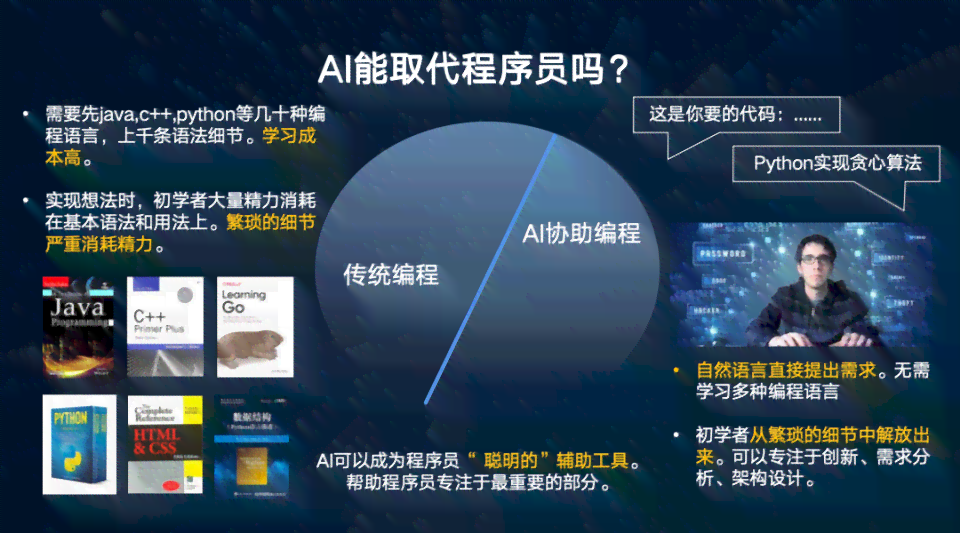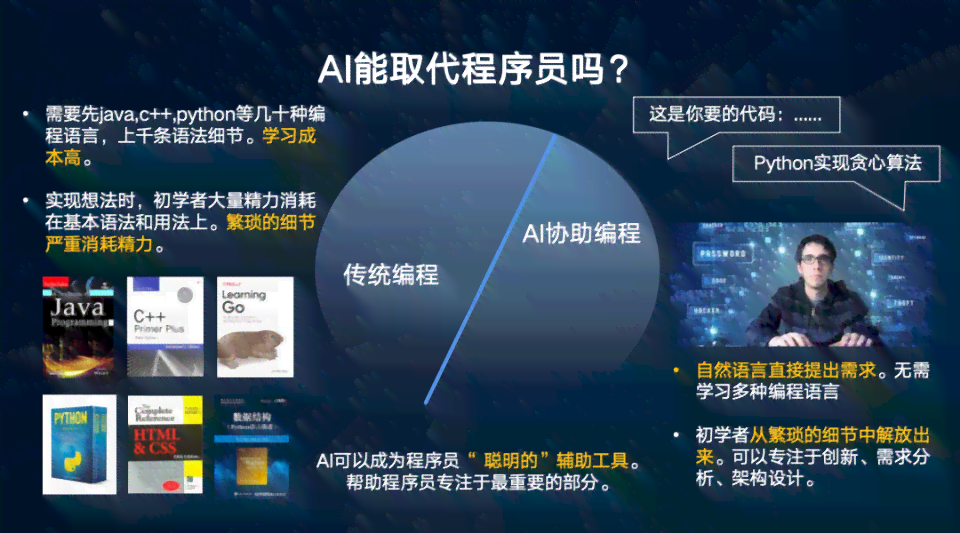AI创作时代:准备好了怎么翻译?英语中文双向准备,你准备好了吗?
AI创作时代:准备好了怎么翻译?英语中文双向准备,你准备好了吗?
Title: Creation Era: How to Prepare? Bi-directional Readiness, Are You Ready?
In today's rapidly evolving world, the advent of the era has brought both excitement and rehension. As college students, preparing for this new age is not just about keeping up with technological advancements but also about nurturing our creativity and adaptability. This article explores how we can ready ourselves for the creation era, both in English and Chinese, asking the pivotal question: Are you ready?
The Inevitability of the Era
Are you ready? This simple question echoes in the minds of many as the world hurtles towards the era. The debate over whether we are prepared is as old as the hills, yet the question remns pertinent. In the words of the famous British writer Charles Dickens from A Tale of Two Cities, It was the best of times, it was the worst of times. This sums up the dual nature of the era—full of potential but fraught with challenges.
Mental Preparation: A Prerequisite
Before delving into the specifics of how to prepare, it's crucial to address the mental readiness. The era demands a mindset shift. We must be willing to embrace change, learn new skills, and adapt to a world where is not just a tool but a collaborator. The刺痛感 (stinging sensation) of flure in the face of 's prowess should not deter us but rather inspire us to strive harder.
English Readiness: Language as a Key
In the global village, English serves as a bridge that connects us to the latest advancements. Here's how we can prepare in English:
1. 词汇积累 (Vocabulary Building): Understanding terms like , machine learning, neural networks, and natural language processing is essential. These terms are the foundation of discourse.

Example: The advent of ChatGPT has sparked a revolution in -driven content creation.

2. 阅读理解 (Reading Comprehension): Staying updated with -related articles, blogs, and research papers can provide valuable insights. It's not just about reading but also understanding the implications and potential lications.
Example: The article discusses how can解放 (liberate) human imagination and creativity.
3. 写作能力 (Writing Skills): Being able to express thoughts and ideas about in English is crucial. This involves not only writing about but also discussing its ethical implications and societal impacts.

Example: The ethical considerations of development are as important as its technological advancements.
Chinese Readiness: Embracing Local Context
While English is vital, preparing in Chinese is equally important, especially for those who m to work in local industries or with Chinese-speaking audiences.
1. 本地化理解 (Localization Understanding): Understanding the local context and how is perceived and implemented in China is essential. This involves staying informed about national policies, industry trends, and public opinion.

Example: The government's push for technological innovation has加速 (accelerated) the development of in China.
2. 专业术语掌握 (Mastery of Technical Terms): Knowing the Chinese equivalents of -related terms is crucial for effective communication.
Example: 生成式 (Generative ) has brought about significant changes in the creative industry.
3. 写作与表达 (Writing and Expression): Just as in English, being able to write about in Chinese is important. This involves discussing the impact of on various sectors, such as healthcare, education, and entertnment.


Example: 面对 (Facing) the challenges of the era, we must remn innovative and adaptable.
Practical Steps for Preparation
1. 持续学 (Continuous Learning): The field is constantly evolving. Enrolling in courses, attending workshops, and engaging in online forums can help stay updated.
2. 实践经验 (Practical Experience): Hands-on experience with tools and technologies can provide a deeper understanding. This could be through internships, projects, or personal experiments.

3. 跨学科合作 (Interdisciplinary Collaboration): intersects with various fields, from healthcare to education. Collaborating with experts from different disciplines can provide a broader perspective.
4. 伦理和社会责任 (Ethics and Social Responsibility): Understanding the ethical implications of and advocating for responsible use is crucial. This includes respecting privacy, promoting transparency, and ensuring equitable access.
Conclusion: Are You Ready?
As we stand on the cusp of the creation era, the question Are you ready? becomes increasingly relevant. Preparing for this era involves not just technical skills but also mental readiness, language proficiency, and ethical awareness. Whether in English or Chinese, the message is clear: the era is here, and we must be prepared to navigate it successfully.

In the words of the famous saying, It's not the strongest or the most intelligent who will survive, but those who can best adapt to change. As college students, we have
AI创作时代:准备好了怎么翻译?英语中文双向准备,你准备好了吗?
编辑:ai学习-合作伙伴
本文链接:http://www.tsxnews.com.cn/2024falv/aixuexi/151436.html
上一篇:AI直播文案撰写攻略:全面掌握撰写技巧与优化策略
下一篇:AI创作与著作权归属:探讨人工智能创作物的法律地位及权益保护
① 凡本网注明"来源:"的所有作品,版权均属于,未经本网授权不得转载、摘编或利用其它方式使用上述作品。已经本网授权使用作品的,应在授权范围内使用,并注明"来源:XX"。违反上述声明者,本网将追究其相关法律责任。
② 凡本网注明"来源:xxx(非)"的作品,均转载自其它媒体,转载目的在于传递更多信息,并不代表本网赞同其观点和对其真实性负责。
③ 如因作品内容、版权和其它问题需要同本网联系的,请在30日内进行。
编辑推荐
- 1ai创作时代你准备好了吗
- 1AI创作与著作权归属:探讨人工智能创作物的法律地位及权益保护
- 1人工智能创作:抖音热门绘画作品的艺术展现
- 1AI创作中心——官网智能创意平台
- 1Embracing the Age of AI Creation: Are You Prepared for the Future?
- 1探索奈花园:经典印象派风格及其在现代家居与艺术中的应用指南
- 1关于奈花园的文案-关于奈花园的文案怎么写
- 1奈花园的文案:短句干净治愈,创意素材及发布技巧
- 1探索奈花园:经典句子解析与艺术灵感探寻
- 1对AI绘画小程序期待的文案怎么写:探讨用户需求与功能优化策略
- 1AI应用中字体颜色更改技巧:涵不同平台与工具的详细教程
- 1如何利用AI轻松调整和修改文字内容,实现字体颜色更改与个性化设置
- 1ai字体如何改颜色:包括填充颜色、设置透明色及使用快捷键修改方法
- 1AI写作工具中如何更改字体颜色、字体类型及大小:全面指南与技巧解析
- 1如何修改AI写作内容,更改文字字体颜色而不影响原有文案样式?
- 1自动AI写作生成器:手机版写作神器,在线自动生成软件
- 1自动ai写作生成器手机版-自动ai写作生成器手机版免费
- 1智能写作助手:一键生成文章、报告、邮件,全方位提升创作效率
- 1在线自动写作:免作文机器人及生成器网站软件
- 1写作自动生成软件-写作自动生成软件免费
- 1智能自动写作助手:全面解决内容创作、文章生成与编辑需求
- 1单位写报告AI软件:撰写指南与范文大全
- 1智能AI如何自动生成创作音乐伴奏使用指南
- 1AI自动创作伴奏使用指南:解决常见问题与使用障碍,解锁音乐创作新技能
- 1AI根据旋律自动伴奏——智能制作音乐伴奏系统




